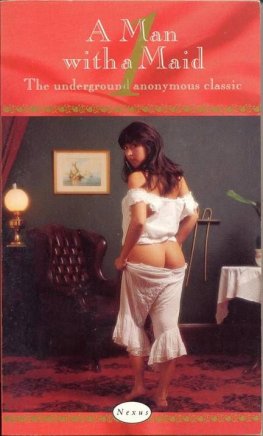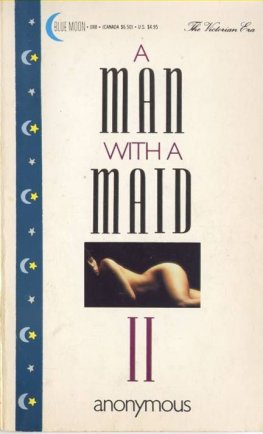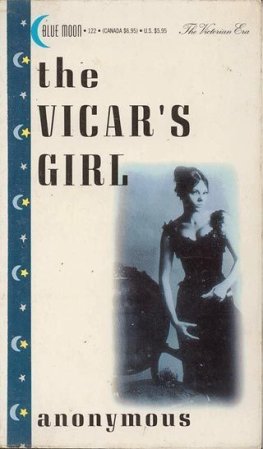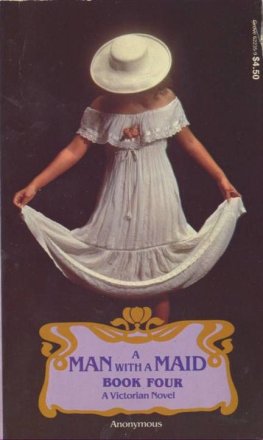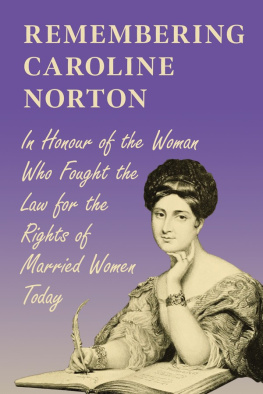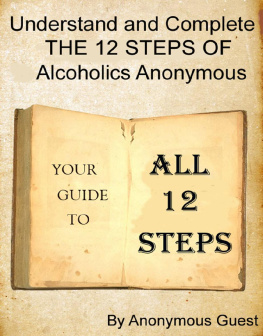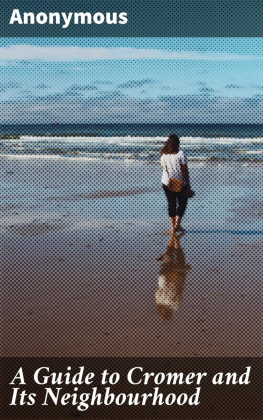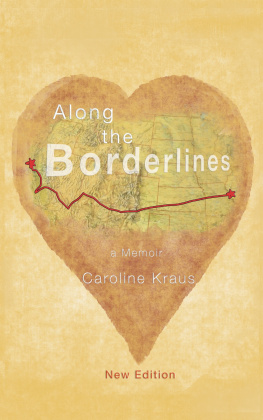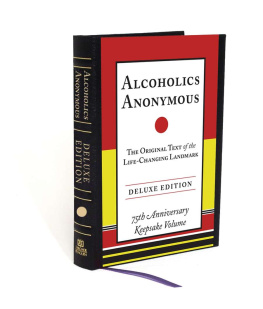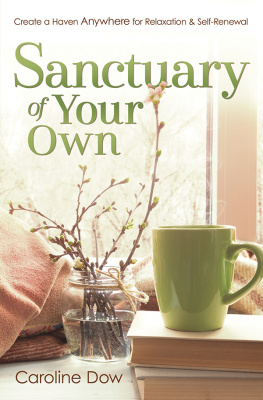Anonymous - Caroline
Here you can read online Anonymous - Caroline full text of the book (entire story) in english for free. Download pdf and epub, get meaning, cover and reviews about this ebook. genre: Romance novel. Description of the work, (preface) as well as reviews are available. Best literature library LitArk.com created for fans of good reading and offers a wide selection of genres:
Romance novel
Science fiction
Adventure
Detective
Science
History
Home and family
Prose
Art
Politics
Computer
Non-fiction
Religion
Business
Children
Humor
Choose a favorite category and find really read worthwhile books. Enjoy immersion in the world of imagination, feel the emotions of the characters or learn something new for yourself, make an fascinating discovery.

- Book:Caroline
- Author:
- Genre:
- Rating:5 / 5
- Favourites:Add to favourites
- Your mark:
- 100
- 1
- 2
- 3
- 4
- 5
Caroline: summary, description and annotation
We offer to read an annotation, description, summary or preface (depends on what the author of the book "Caroline" wrote himself). If you haven't found the necessary information about the book — write in the comments, we will try to find it.
Caroline — read online for free the complete book (whole text) full work
Below is the text of the book, divided by pages. System saving the place of the last page read, allows you to conveniently read the book "Caroline" online for free, without having to search again every time where you left off. Put a bookmark, and you can go to the page where you finished reading at any time.
Font size:
Interval:
Bookmark:
Anonymous
Caroline
CHAPTER ONE
When I was a child I thought of such lanes as led towards our house, or crossed the countryside around, as ways out of the world into another world. At night I conceived of huge doors closing at the ends of them, of carriages, carts, and hawkers' barrows waiting for the dawn that they might open up again.
Children entertain such mysteries. I have often thought that the world is more real in childhood than obtains when we are older, for in growing older we cloak the world in thought and make it other than it is. A child will say I, and yet it merges its identity with others and so better enjoys the fruitfulness of all. Upon reaching one's middling years, or long before, there comes a consciousness of conflict in oneself. One wishes to be others and yet not, and is in the very centre of a tug-of-war. So often does one hear another say, I am not myself today, or they may say, I do not like myself-oh, would that I could change! or again (and most often in the case of women), Tomorrow I shall be different; I shall be more myself; I shall be better than I am today.
I-older now-am both myself and yet another whom I do not know. I have gazed at my reflection in mirrors- many mirrors and in different rooms-and wondered at the being who stared back at me and to whom my only relationship, as I felt, was one of wonderment, a sense of being awkwardly disturbed that I had materialised in quite another guise to what I thought, looked how I did not think I looked, hair tousled where I thought it smooth, an alarm of creases faint upon my brow.
Once, in moment of exquisite terror-such terror as is flavoured by the condiments of deep excitement and a quivering in the very soul-I stood before a mirror in my mother's room, which mirror being on a stand allowed a full length view, and asked myself, Who am I, then? So piercing is the question to oneself that my toes curled painfully and I could not bear to meet the blank reflection of my eyes.
Had my mother entered her boudoir then, I believe I might have run to her, though being seventeen I was too old for cuddles. Even so, there were brief occasions when, seemingly for no reason whatever, she would suddenly hug me to her and I would be conscious of the largeness of her breasts and the sweet, melting look in her eyes.
I was more about the house than my father who, when he was not in London on business, would do much shooting and riding. I did not care much for this, but my sisters, Adelaide and Bertha, did and would ride on white stallions which he preferred them to have instead of mares. I knew not why. He taught them to take horse as men do with the saddle in between their legs, my mother objecting and saying it was most unladylike and that she feared our neighbours would see. Often enough in Spring and Summer the three would ride out together after breakfast, not returning until lunchtime, flushed and bright.
Mother would not allow them to take lunch until they had bathed, which they did together to save water and to be quick while father strode about, smoked a cigar and snapped his crop against his legs. I thought my mother of an ill mood at such times, but later I better understood. Bertha was twenty and a strapping girl, rich in her curves and with a sultry lower lip. Adelaide, two years younger, but senior to me by eighteen months, was much the quieter of the pair and slimmer but well-formed. Their splashing together in the bath reminded me always of the sea-sound and the waves that lap upon the beach. They would laugh and splash each other. Mother would call out to them to be quiet. They heeded her, but then would start again. Mother would sigh and say, I know no end to it.
Father would take his paper up and read and not reply to her. I thought it rude of him, but adults then were a whole world apart.
Bertha married at the age of twenty-one-not to the pleasure of Papa. He birched her when he heard of her intent, but she grew the more rebellious. Several times at night I heard him go into her room and heard the silky swishing of the birch and Berthas cries. Mama would disappear and lock her door when such occurred, sometimes with Adelaide and sometimes not. My younger sister objected and would sometimes have herself let out and take herself, not speaking, to the morning room until Bertha's cries grew softer. Then would a silence fall that seemed both fearsome and awesome to me. After Papa at last emerged, Bertha would go to bed and no one would speak to her until the morning. Even then, Mama was still put out with her, though not on account of her intended betrothal, so I felt.
Adelaide took a suitor not long after. A weed of a man, I heard Papa call him-speaking to Mama. He did not birch her, though, and still they took their rides together. When Bertha visited, Papa would not receive her husband but would speak with her only in his room where she would stay for half an hour or so and come down all a-bubble, for her birching days were done.
Bertha and Adelaide remained very close after their marriages, but that period between them did not last for long. Several months following Adelaide's wedding, Bertha was transported with her husband to India where he joined his regiment. Our salad days are over. Mama said, and wept a little. Adelaide was quieter and did not often visit us. My mother worried and, one morning, asked me to go and see her and to take a basket to her of cakes and such.
I did not want to go, fair as the morning was. It was a long ride, I said, and the basket would be difficult to carry.
Take the pony cart, Harry, and do not be lazy, Mama said. I kicked about the house, but then decided that I ought to go or would hear nothing else all day. From cook I took the basket and some beer to refresh myself on route. I preferred it then to wine but have no taste for it nowadays.
It had been a month since I had seen my sister. There was a fondness between us that always was restrained-I believe because Papa was watchful of our ways. The journey took two hours. I loitered on the way, had oysters at an inn and passed the border into Kent at noon. I thought of my doors of childhood as I rode the lanes and almost wished to be a child again, though out of boredom rather than desire.
The house had a blank look as I took the driveway to it-that blank look that lonely country houses often have when the sun sheens the windows and makes them glitter white, or gives a dullness to the glass. A gardener doffed his hat to me and stirred his fork along a border where some rhododendrons showed their thick, plump growth. The maid who let me in was thin and pale as if the sunlight always skirted her. Mistress was lying down, she said, but Miss Caroline would receive me in the drawing room.
I wished to ask who Miss Caroline was, but one does not ask an unknown servant that. The etiquette on such a matter being strange, and I no expert at such things, said I would announce myself, put my hat and basket down and went straight in.
Ah, what a vision rose to greet me as I parted the waves of the two doors! I saw the most exquisite creature, scarce more than my own age and dressed in white and pink, a ribbon in her nut brown hair that tressed her shoulders in long waves. Her nose was small and straight, her eyes were huge. I remember noticing immediately how small her waist was and how svelte her hips-how prominent her breasts were for her years, how lovely were her lips.
We were soon introduced. Without staider adults present, it is always easier.
Adelaide is well? I asked.
Oh, yes, indeed-that is to say Harry, I must speak with you-strangers as we are, you will not mind? May we have wine? I am more the visitor than you, she smiled and swept her skirt behind her legs and sat.
Of course, of course. I almost stammered in my haste and rang the bell and gave my lordly orders. In a moment we were sipping at our glasses and my eyes were lost in hers.
Font size:
Interval:
Bookmark:
Similar books «Caroline»
Look at similar books to Caroline. We have selected literature similar in name and meaning in the hope of providing readers with more options to find new, interesting, not yet read works.
Discussion, reviews of the book Caroline and just readers' own opinions. Leave your comments, write what you think about the work, its meaning or the main characters. Specify what exactly you liked and what you didn't like, and why you think so.

